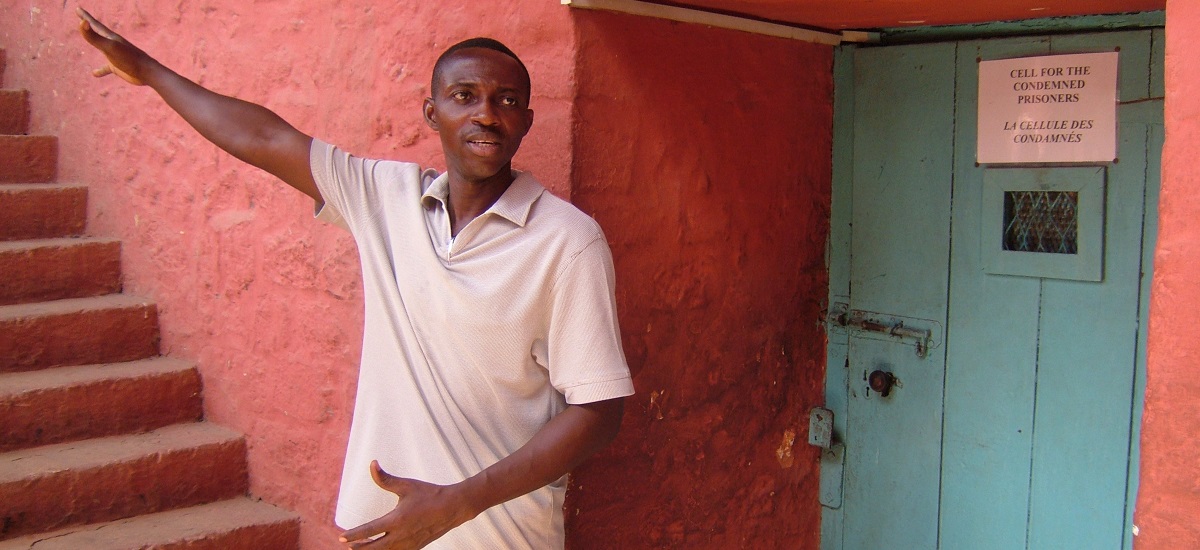In Spring 2017, Center of African Studies (CAS), University of Copenhagen organised a seminar to discuss how Africa is represented by media and non-governmental organisations.
Among the speakers was Søren Bendixen, Africa Correspondent, Danish Broadcasting Cooperation (DR). He is the first Africa Correspondent with DR and strangely enough he is not based in Africa, but on Amager – the island South of Copenhagen. Søren Bendixen told about the enormous task he is facing covering a whole continent and contributing to all platforms of DR – video clips on dr.dk, sound bites for P4 Radio, P1 Radio News, and reports on DR1 TV News. In delivering only short segments to these platforms, except for DR1 TV News, he is struggling with the question: How much can I simplify without making it untrue? Other speakers raised similar concerns when describing examples of their communication activities on Africa.
Stig Jensen, who is an Associate Professor at CAS and frequently appearing in media on African issues, shared his research findings on the media coverage in Denmark under the heading: Does Danish media prefer news from Africa that confirms a pessimistic perspective and what might be some of the reasons for this?
In summary, Stig Jensen draws a line between the period before 2001 and after, when a new right wing government took over and introduced severe cutbacks in development aid.
In the early days, the perspective of the state was one of expanding Scandinavian model through development aid. Being a small state, it is important for Denmark to participate in international development cooperation. Key words were altruism, equal partnership, and empowerment. NGOs enjoyed the substantial funding available. Donors were more important than the members. New NGOs were mushrooming; they were active in advocacy and quality assurance of policies. Media had a clear idea about what to communicate targeting: How can we influence the attitude. According to Stig Jensen, an epistemic community emerged including researchers and experts linking up with development journalists. There was an openness and a lot of time to explain in discussions with politicians, experts, and with NGOs, all subscribing to a consensus that ‘aid is good, and more aid is better’.
After 2001, everything changed, and apathy set in. The focus became a perspective of white man’s burden, what is good for us, e.g. in terms of national security and job creation. There was a Minister for Freedom and for Rights, however aid should benefit ourselves from the perspective of the state. Now, NGOs had to face an unfriendly state, and competition among NGOs sharpened. ‘Sugar Daddy’ had left, NGOs were now looking into their own survival. Having members was considered most relevant, and the priority on policy debates faded. Stig Jensen quoted one comedian: ‘Information doubles every day, at the same time our wisdom is cut in half every day’. What is being communicated about Africa is what is nice to know; before the focus was on need to know. Afro pessimism is growing. Peaceful government transitions, the work of ECOWAS etc. are not covered in the media. Only cases like the Gambian president clinging on to power hit the headlines. The approach to Africa is segmented, there is little analysis. In the past, the sentiment was one of we can make a change. Now, the media coverage is fragmented with an Africa pessimistic undertone, concluded Stig Jensen.
At a different location in Copenhagen at The Danish Society of Engineers (IDA), its section on Global Development organized debate around the same time, in which veteran journalist Knud Vilby made similar observations. He criticized the NGOs for becoming complacent with regard to the development in Danish aid and aid policies. One reason is the change of the donor support to civil society organisations. Danish NGOs now have to engage in a sort of tender exercise. According to Knud Vilby, a shift of paradigm is taking place, which could imply a farewell to an independent civil society. ‘It is a kind of paradox, because DANIDA claims civil society is important in developing countries. However, in Denmark, it seems that DANIDA does not realize that the civil society organisations have a lot to offer due to their history and diverse competences. There is a significant risk that the independence of civil society is about to disappear’, Knud Vilby said.


